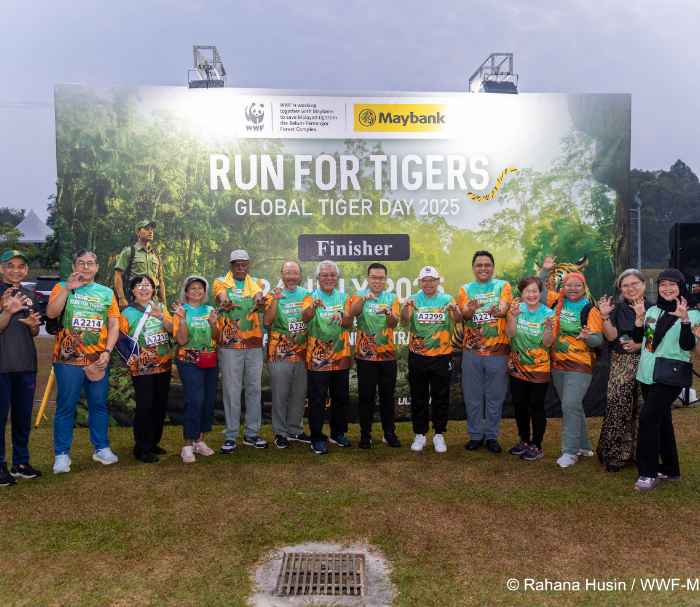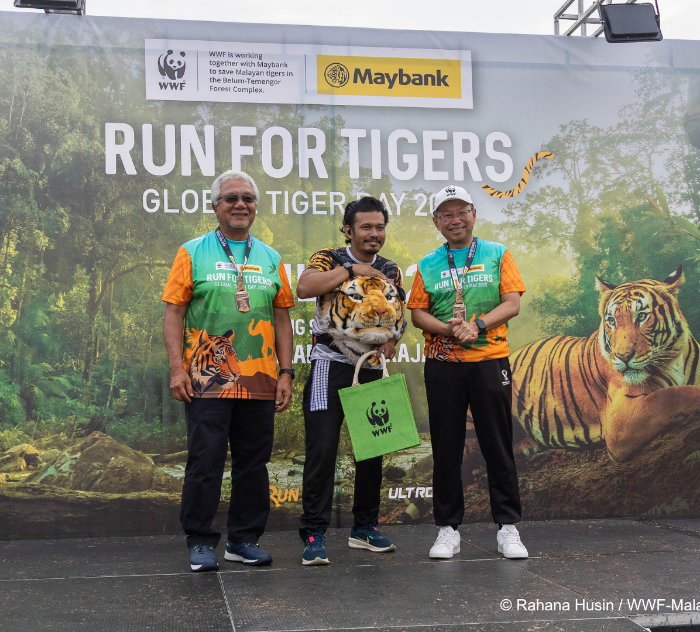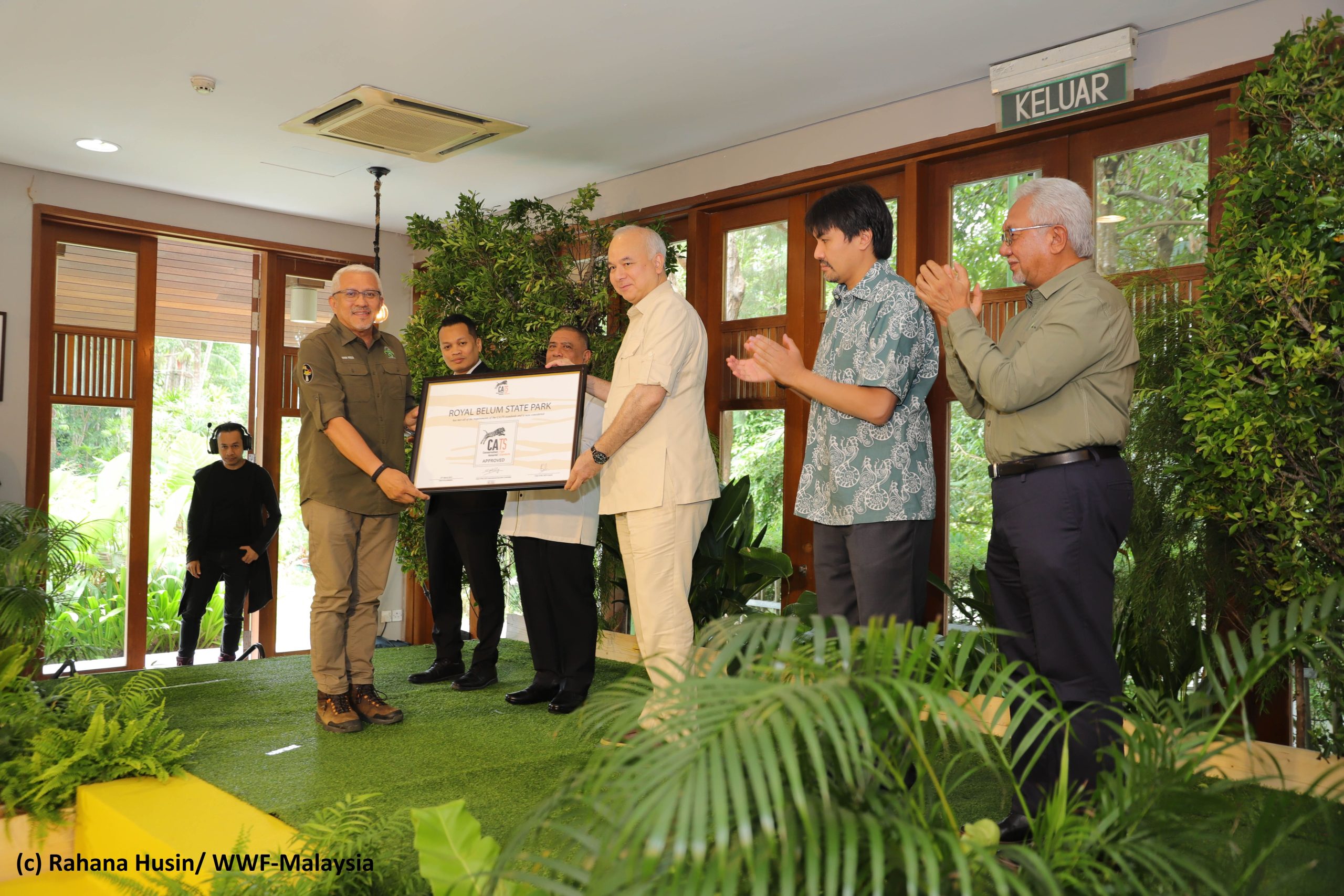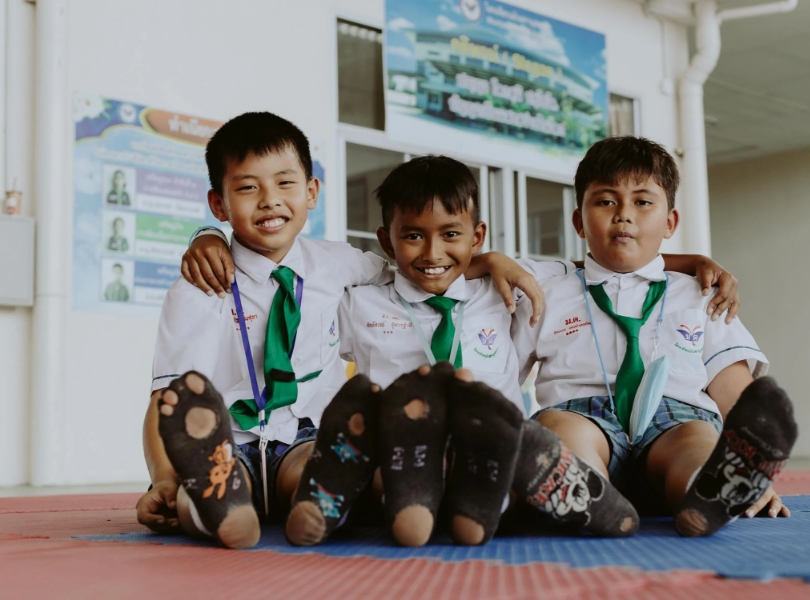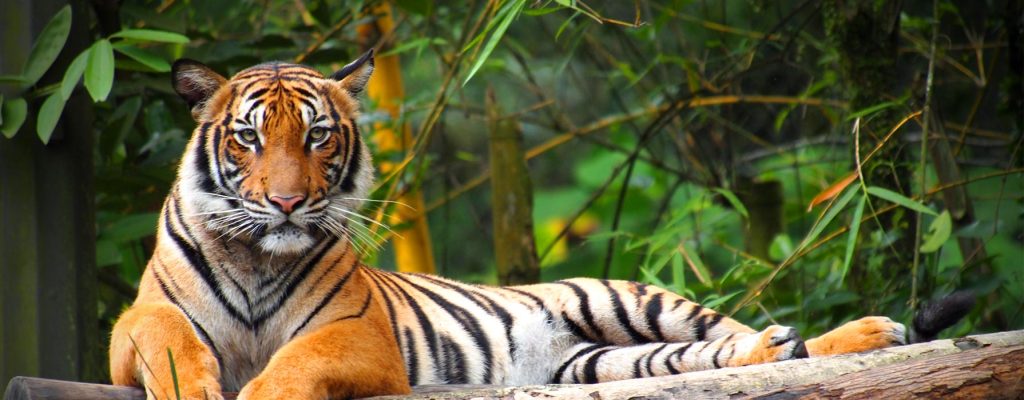
About this programme

The Malayan tiger (Panthera tigris jacksoni) can only be found in Peninsular Malaysia and was recognised in 2004 as the 9th sub-species. In the 1950s, there was an estimated 3,000 Malayan tigers roaming in the forest, but as of today, less than 150 remaining tigers are believed to have survived. This number has not been confirmed for certain.
The number is steadily decreasing poaching, illegal trade of tiger parts and habitat loss, which subsequently leads to human-wildlife conflict. Hence, Maybank took action and collaborated with one of the NGOs that is working to conserve and restore Malaysia’s rich biodiversity, WWF-Malaysia in 2016.
The partnership aims to conserve the Malayan tiger population in the Belum-Temengor Forest Complex, a priority site for tiger under National Tiger Conservation Action Plan. WWF-Malaysia will also lobby for conservation measures such as better protection access in the forest, enhancement of ecological linkages, and better logging practices. Being one of its kind, this is the only NGO-led tiger conservation programme in the site with the highest tiger density in Malaysia. WWF-Malaysia also engages with the local indigenous communities in Belum-Temengor to raise their awareness and explore sustainable livelihoods for their long-term benefits.
In order to strengthen the tiger conservation efforts, Maybank Foundation and WWF-Malaysia have developed our own strategies that will further assist in the conservation of tigers.
One of the strategies is to gradually increase patrolling efforts from 1,500 km to 3,000 km per year. Through these planned efforts, we hope to save more tigers that are currently in the Belum-Temengor Forest Complex.
Thus, it creates public awareness on tiger conservation and to inform the public about Maybank’s initiative as a responsible corporate entity to conserve the tiger population. The other strategy was to reduce poaching threats and report any wildlife crimes to Department of Wildlife and National Parks (PERHILITAN) as previously, there were many crime cases reported such as foreigner campsites, illegal hunting, and the increasing number of tiger poaching activities. In the future, we hope to create more campaigns that would encourage the public to raise much awareness about the dwindling number of wild tigers in Asia as an important part of the programme.
Besides that, we planned to obtain the baseline level of conservation awareness among the Orang Asli (indigenous) communities and engage with their communities to form a core group of sustainable livelihood participation. One of the methods of collecting these data is by conducting workshops for the villagers, in regards of their gender, to establish community-based groups for Orang Asli in Belum-Temengor. Furthermore, the local communities agreed to run surveys in order to gain access to the level of awareness on tiger poaching and also participate in an anti-poaching system. In order to strengthen Maybank’s engagement with the communities, several of the villagers were interviewed to understand more about their level of awareness.
Anticipated Results of the Strategic Plan
The establishment of systematic and effective protection measures through the usage of SMART patrolling to reduce poaching activities by at least 50%.
Capacity building on SMART and other anti-poaching initiatives to enable enforcement agencies to carry out more efficient patrolling.
The tiger population in Temengor experienced a 50% increase, and the number of tigers in Belum are maintained.
The level of conservation awareness among the local communities have increased by 50%.
Introduction of a potential sustainable livelihood model to empower local communities to help in conserving the surrounding forests.
Last but not least, the programme will be extended to the larger part of the Northern Banjaran Titiwangsa to ensure the long-term viability of tigers within that area, which is one of the largest contiguous forest complex in Peninsular Malaysia. We hope to achieve this by collaborating with the PERHILITAN, Perak State Parks Corporation, and the Economic Planning Unit of Perak.
Realising that the battle against extinction is far from over, Maybank via Maybank Foundation continues to advocate for increased tiger conservation efforts through the current Phase 3 of the programme.
The collaborative efforts of Maybank and WWF-Malaysia has resulted in the following :
The deployment of over 100 rangers across more than
Active snares deactivated
More than
Cameras were installed in over 200 locations in
Belum-Temengor Forest Complex from 2020-2023
In 2023, Royal Belum State Park received CA|TS accreditation, making Malaysia the first in Southeast Asia to adopt this global tiger conservation standard.
One notable outcome from the partnership occurred when in 2023, the Royal Belum State Park being awarded the prestigious Conservation Assured |Tiger Standards (CA|TS) accreditation in recognition of its exceptional conservation efforts and commitment to tiger conservation. With this acknowledgment, Malaysia became the first country in Southeast Asia to implement CA|TS in the region.
Stride for Stripes, Stand for Coexistence : Malaysians unite for Wildlife Protection on Global Tiger Day
On 26 July 2025, the spirit of conservation came alive at the Run For Tigers 2025 event, held at Padang Semarak, Putrajaya Wetlands Park, on Saturday, in conjunction with Global Tiger Day.
Co-organised by Maybank and WWF-Malaysia, the 3.5KM fun run, saw an impressive turnout of over 1,000 participants of all ages – many turning up in vibrant jerseys, with some even donning playful animal costumes. The festive yet purposeful atmosphere perfectly reflected this year’s theme: “Stride for Stripes, Stand for Coexistence.”
The event was officiated by YBhg. Datuk Dr. Ching Thoo A/L Kim, Secretary-General of the Ministry of Natural Resources, Environment and Climate Change (NRECC); Tan Sri Dato’ Sri Ir. Zamzamzairani Mohd Isa, Chairman of Maybank Group and Maybank Foundation; and Tan Sri Abdul Wahid Omar, WWF-Malaysia Chairman.
